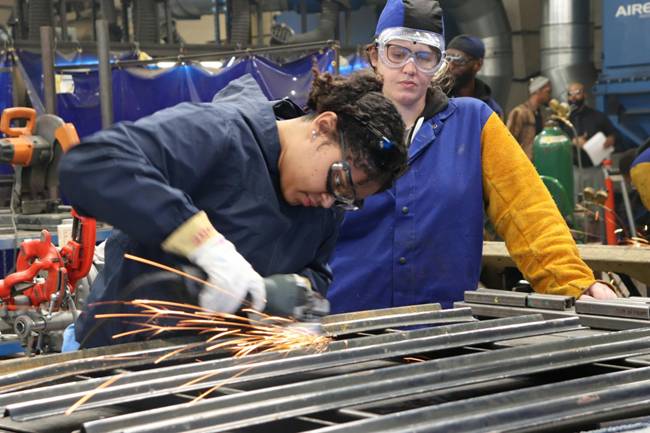
Amidst a rapidly changing job market, the value of vocational education has never been clearer. Trade programs offer a practical alternative to the traditional academic pathway, equipping students with specific skills tailored for immediate employment. As industries cry out for skilled labor, these programs present a viable solution to fulfill the demand. They not only foster economic development but also provide individuals with a solid foundation for a successful career. Keep reading to explore how these vocational routes pave the way to professional growth and job satisfaction.
Unlocking Career Opportunities Through Trade Programs

Trade programs open doors to diverse career opportunities often overshadowed by four-year degrees. These specialized, hands-on courses prepare students for high-demand fields such as electrical work, welding, or HVAC services, with training tailored to industry needs. By replicating real-world job environments, trade schools equip learners with practical experience that boosts employability.
Many programs are designed to be completed within two years, allowing students to enter the workforce and start earning sooner. Strong partnerships with local businesses also enhance career prospects, offering valuable networking opportunities and smoother job placements. This combination of focused training, industry alignment, and accelerated pathways makes vocational education an attractive choice for many.
The Role of Vocational Training in Bridging the Skills Gap
The growing skills gap has made it harder for employers to find qualified workers, but vocational training offers a practical solution. These programs evolve with industry standards and technology, equipping students with relevant expertise while giving employers a chance to influence curriculum development and shape a skilled workforce.
Popular trade programs also provide certifications that are valued across industries, ensuring graduates have both hands-on experience and recognized credentials. As the economy becomes more specialized, this blend of training and certification will play a vital role in preparing workers to meet the demands of a changing job market.
Real-World Experience: The Advantage of Trade Program Graduates
Trade programs stand out for their strong focus on real-world experience through internships, apprenticeships, and on-the-job training. Students gain practical insights that build both technical expertise and professional confidence. Graduates enter the workforce with a solid grasp of daily responsibilities, reducing the learning curve and enabling them to contribute immediately.
Alongside technical skills, these programs emphasize soft skills such as communication and teamwork, which are vital in collaborative environments and often harder to develop. The hands-on approach also allows students to identify their strengths and cultivate specialized abilities that align directly with employer needs, preparing them to navigate the demands of today’s trade industries.
From Classroom to Career: Trade Programs and Job Placement Support

Transitioning from school to work can be challenging for graduates, but trade programs help ease this process through strong job placement support. Career services in these institutions connect students with employers early, offering resume workshops, interview preparation, and trade-focused job fairs that match students with companies seeking their skills.
Many schools also keep alumni and employer databases, giving graduates access to valuable networks and resources. Strong industry ties often lead to or direct-hire opportunities, reflecting the value employers place on practical, hands-on training. These efforts ensure students gain both technical knowledge and clear pathways to employment.
Lifelong Learning and Advancement in Trades: Continuing Education Benefits
In the trades, continuing education is essential for and adaptability. Many trade programs emphasize lifelong learning by offering advanced courses and certifications that help workers stay updated on industry standards, safety practices, and new technologies. Beyond technical expertise, these programs often prepare individuals for leadership or business ownership by providing valuable management and entrepreneurial training.
This equips tradespeople to navigate new career paths with confidence and skill. Trade schools also foster strong professional communities where peers and mentors exchange knowledge, guidance, and support. These networks create a collaborative environment that encourages both personal and professional development throughout a tradesperson’s career.
Overall, the impact of trade programs on career success is undeniable. By providing targeted education, promoting real-world readiness, and supporting job placement, these institutions lay the groundwork for prosperous careers. Their commitment to ongoing education ensures that the trades will continue to thrive and adapt to the demands of a dynamic economy. The bridge between trade education and career accomplishment is strong, and those who cross it are well-equipped for the journey ahead.





